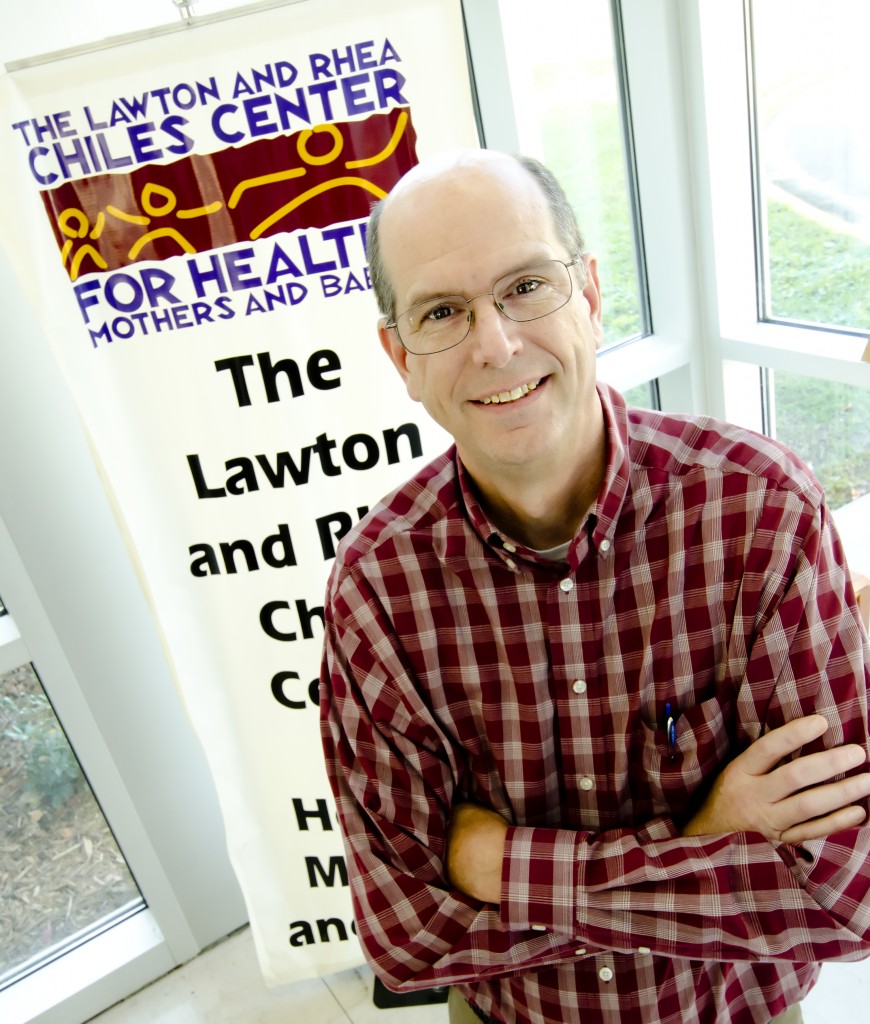Community and Family Health secures COPH’s first PCORI grant
Dr. Sheri Eisert, associate professor in the Department of Community and Family Health, is leading a research team that has secured the USF College of Public Health its first grant from the Patient-Centered Outcomes Research Institute, or PCORI, an independent, non-profit organization authorized by Congress in 2010.
PCORI says its mission is “to fund research that will provide patients, their caregivers and clinicians with the evidence-based information needed to make better-informed health care decisions” and that it is “committed to continuously seeking input from a broad range of stakeholders to guide its work.”
The award will fund a study titled “Developing a Community Partnership Focused on Prevention of Opiate-Exposed Newborns,” which will be aimed at prevention of NAS, or neonatal abstinence syndrome.
According to the National Library of Medicine, “Neonatal abstinence syndrome is a group of problems that occur in a newborn who was exposed to addictive opiate drugs while in the womb. Because the baby is no longer getting the drug after birth, symptoms of withdrawal may occur.”
“We propose to develop a community partnership consisting of patients, researchers and providers that deliver care and services to opiate-addicted mothers and their infants,” says the study’s proposal, which also notes that the Tampa-St. Petersburg-Clearwater metropolitan area “has the largest number of opiate-exposed births in Florida, representing 400 of 1,800 opiate-exposed births in 2013—a fivefold increase over the past 10 years.”
“We are excited about the college’s first PCORI grant,” said Dr. William Sappenfield, who chairs the Department of Community and Family Health and directs the Lawton and Rhea Chiles Center for Healthy Mothers and Babies.
Eisert will serve as principal investigator for the study, while Sappenfield will chair an advisory council.
“The purpose of this advisory council that Dr. Sappenfield is going to chair is to identify the problem,” Eisert said. “We’re all agreeing that we want to prevent NAS, because a lot has been done on treatment – treatment of the baby while in the hospital. How can we help keep a baby out of the hospital to begin with? How can we more readily connect services to help these women? What do we really know about addiction?”
Eisert hopes that focus groups will provide some answers.
Eisert and company comprise one of 47 small groups and individuals in 20 states and Puerto Rico that PCORI has selected to share nearly $700,000 in grants for community-building projects through its Pipeline to Proposal awards program.
“Giving an opportunity for these patient- and community-driven partnerships to develop represents part of PCORI’s commitment to patient-centered research,” said Jean Slutsky, PA, MSPH, PCORI’s chief engagement and dissemination officer. “We’re excited to offer another opportunity to assist those who are eager to promote and engage in community-building through the second round of Pipeline to Proposal awardees. We look forward to seeing their work over the next nine months.”
Pinellas County will be the project’s target area. The project will seek to build partnerships via monthly meetings to develop governance, communication and “a strategic plan to identify strategies to prevent neonatal abstinence syndrome, a narcotic withdrawal disorder affecting digestive, breathing and nervous systems of newborn babies.”
The project’s proposal goes on to say that the Healthy Start Coalition of Pinellas County and three hospitals in the county that provide mothers and infants neonatal intensive care are among the target partners, along with Operation PAR, Inc., which supplies the county’s primary methadone clinic, the county health department and patient stakeholders.
“Currently, these groups informally communicate through referrals and individual relationships,” the proposal elaborates, “but a formal structure has not been developed to target prevention of NAS. By facilitating community collaboration among the various groups that provide a complex web of care and support services to these women and their infants, we can better understand the opportunities for preventing and reducing NAS.”
Two years in the making, the project gets its start on an exponentially smaller scale than Eisert and partners had hoped.
“We submitted a $2.4-million grant request on a similar topic, and it didn’t go,” she said. “So then, I thought, ‘We need to back up. They have these Pipeline Awards, which are much smaller. Let PCORI get to know us, because this is a complicated issue.’ So, we went back to the community and said, ‘We’re not giving up. Let’s start small.’ It’s not easy to get PCORI money. We’re persevering.”
With partners on board, an internal award to supplement the PCORI award and a belief that big things can come from small beginnings, Eisert is grateful to be able to launch the study with an eye to the future.
“We’re very excited to get the college’s first PCORI grant,” she said. “We hope this will evolve into the second phase, because the second phase of the Pipeline is to go into developing a research proposal with the community. So, we’re excited to have that opportunity. We’re in a progression to get more funding now.”
Story by David Brothers, College of Public Health.


